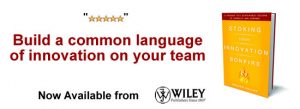Innovating Human Resources

If you boil down the function of Human Relations to logical extremes, you end up with polar opposites.
On one hand, you have the traditional view of HR: a place to fill out all of your essential employee paperwork, ask questions about benefits, send out messages about birthdays, and a place to be heard if you have an issue with a manager or boss.
On the other hand, you have strategic HR: rigorous screening and individualized training programs set up for each professional’s career growth, cunning talent spotting and recruitment, and even change management geared toward letting the company reach it’s potential by tapping the strengths and potential of each team member.
The war to find, harness, and retain talent is real, and if your HR department is stuck in the traditional mode, then need to fix that oversight quickly. Once fixed, you can begin to use Human-centered Innovation Methods to bring out the best in the people and the culture.
The future of business is human: human-to-human. Even technology and financial services are merely tools for humans. Those who honor this premise will have a natural, legal, and sustained competitive advantage.
If you solve a problem for real people in the market—regardless of what business you are in—you’ll prosper. If you solve culture problems for people inside your business, they will reward you by giving their best and remaining loyal.
No one thing can empower strategic human relations as much as human-centered innovation methods.
Here’s one example of how an Innovation Workshop can be implemented for high-potential employees.
Demonstrate empathy, trust, and collaboration.
Based on their culture and the growth goals set up by leadership, they did in-depth interviews with any another as the empathy subjects.
Explore group problem-solving.
Using that empathy data, which was plentiful, we moved into define. Many need states and points of view were developed.
Have them generate new ideas and then prioritize them.
After we had distilled down the insights—most of which ended up being groupings of internal obstacles to growth, we moved into ideation. The team then created the judging criteria for which concepts were worthy of prototyping.
Build and test concept prototypes. The team—of 12—split into two teams to prototypes and further develop programs and solutions. They handled co-creation by pressing to the opposite group and getting their feedback. We refined the prototypes. For the storytelling, the team presented the outcomes to the executive team. Several of the concepts were implemented. The team noted the obvious benefits of design thinking: deep collaboration with people from different divisions, rapid problem solving, fast testing of ideas, and how listening with empathy empowers trust and builds strong bonds. I can go into more depth but will spare you.
Wait! Before you go…
Choose how you want the latest innovation content delivered to you:
- Daily — RSS Feed — Email — Twitter — Facebook — Linkedin Today
- Weekly — Email Newsletter — Free Magazine — Linkedin Group
 Michael Graber is the managing partner of the Southern Growth Studio, an innovation and strategic growth firm based in Memphis, TN and the author of Going Electric. Visit www.southerngrowthstudio.com to learn more.
Michael Graber is the managing partner of the Southern Growth Studio, an innovation and strategic growth firm based in Memphis, TN and the author of Going Electric. Visit www.southerngrowthstudio.com to learn more.
NEVER MISS ANOTHER NEWSLETTER!
LATEST BLOGS
The Network Operators are Dead – Long Live the Mobile Operators
There is little doubt now that the telecommunications industry is a tumultous and precarious place to be. On the wireline side, baby bells and cable companies are engaged in a necessary but costly arms race. Both are forced to invest in increasing broadband capacity and coverage while simultaneously facing increasing competition from wireless service providers.
Read MoreInvention versus Innovation – Auto Industry Example
Here is an invention that never became an innovation (for sale on eBay): Want to buy a car with disappearing doors? (check out the video) Up next week – “Invention versus Innovation” How do you think invention and innovation are different? I’ll give you my point of view next week.
Read More



